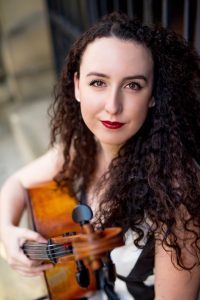Q&A with Shannon Ross, cello
 This past summer the Bowdoin International Music Festival welcomed 255 student participants from 27 countries and 30 states, including 17 remarkable Festival Fellows. Sixty-five percent of these participants received scholarship funds from the Festival. In celebration of an incredible 2016 season and in anticipation of an even better 2017 season, we’ve reached out to last year’s participants to reflect on their experience at the Festival and their lives as musicians.
This past summer the Bowdoin International Music Festival welcomed 255 student participants from 27 countries and 30 states, including 17 remarkable Festival Fellows. Sixty-five percent of these participants received scholarship funds from the Festival. In celebration of an incredible 2016 season and in anticipation of an even better 2017 season, we’ve reached out to last year’s participants to reflect on their experience at the Festival and their lives as musicians.
BIMF: What are some of your earliest musical memories?
Shannon: When I was little I would sit at the piano and stroke at the keys or hit them with my tiny four year old fists. My parents could tell that I was captivated by the instrument so they decided to enroll me in piano lessons for my fifth birthday. After that, my noise turned into beautiful music! It was a big turning point in my life. I went on to play piano for nine more years before switching to cello.
BIMF: At what age did you start playing your instrument?
Shannon: I started playing the cello at age 12. I started much later than most of my peers, but I think that sends an important message. You can start learning music at any age, whether you’re three years old or 100 years old. There is no limit to loving music.
BIMF: Does the instrument you play on have a story?
Shannon: My cello is a Bohemian-made instrument built in 1870. The cello’s name is Ulysses, named after Ulysses S. Grant, the general of the Union army in one of the most important wars America has fought. Without him, our country would be extremely different. He is a hero, and I feel that my cello is heroic as well. My instrument gives me power when I play. I bought my cello in Sarasota, Florida where I really learned to love music.
I got my bow from Laszlo Varga, a Hungarian-born American cellist who was the former principal cellist of the New York Philharmonic. I visited him to try his bows and beautiful cello, and he told me his incredible stories about World War II.
BIMF: What is the longest you’ve ever spent preparing a piece of music?
Shannon: I have spent a very long time learning the Bach Suites. In my opinion, you can never spend too much time learning Bach. I spent two years working on the second suite and look forward to returning to it in the future.
BIMF: If you could play with any musician who would it be?
Shannon: I would love to work with Benjamin Britten. He had fascinating ideas and found inspiration in the human voice. It is said that cello is the instrument that most closely imitates the human voice because their ranges are so similar. I am currently working on the sonata for cello and piano that he wrote for Rostropovich.
BIMF: How would you explain your passion for chamber music to a non-musician?
Shannon: It is equivalent to the passion it takes for a team of chefs to make an incredible meal. When you go to a fancy restaurant, you get a glimpse inside the kitchen, and you see all the amazing chefs at work, all putting their creativity and skill into a single meal. If it is executed well, there will be amazing results and enjoyment from the people who receive the meal.
BIMF: How do you make a well-known piece of music your own?
Shannon: I try to look at every piece with fresh eyes. I might have listened to a recording or two of the piece beforehand, but I make sure that those recordings don’t influence my judgement of the piece.
BIMF: What was one highlight of the 2016 Festival for you?
Shannon: Watching the Ariel Quartet perform in Studzinski Recital Hall. They perform often in Sarasota, Florida, where I lived for a while, and I was fascinated by how they worked together so well. Their sounds mesh beautifully and they are all fantastic musicians. The Ariel Quartet is the ensemble that really sparked my love for chamber music when I first started playing cello. They performed two of my favorite string quartets: Haydn’s “Sunrise” String Quartet in B flat major, Op.76 No. 4 and Bartok’s String Quartet No. 1. They also performed Shostakovich’s Piano Quintet with my chamber coach, Elinor Freer!
BIMF: What’s next for you after the Festival?
Shannon: I plan to go to conservatory after high school either here in the states or in England. My career goal is to play in a professional string quartet. I have always loved playing chamber music ever since I first started playing the cello. String quartet playing is so enticing and exciting; I would love to make a career out of it.
BIMF: What advice would you offer to an aspiring musician?
Shannon: Never give up. Never. Sometimes you might think about giving up when things get hard, but I promise you, those feelings will go away, and your love of music will take over. Things will turn around as long as you work for it, and your work will have beautiful outcomes. I couldn’t imagine my life without music. Music has truly changed my life for the better.
